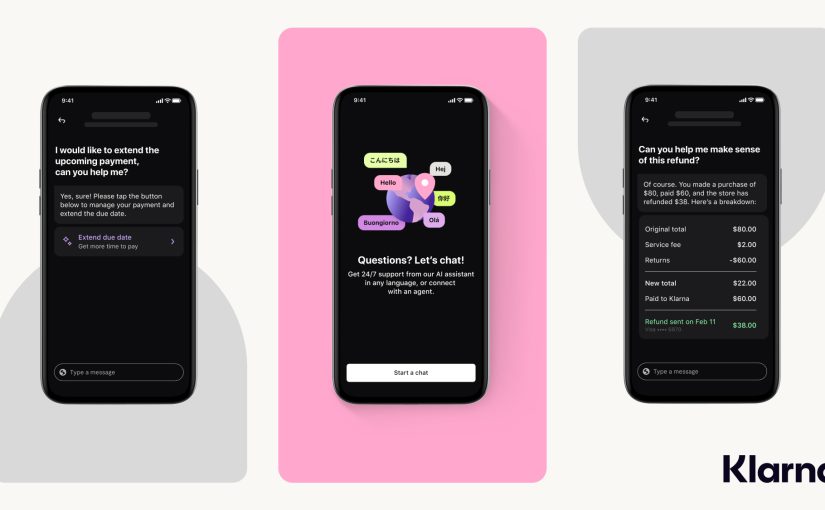The CEO of fintech giant Klarna has warned that the power of Artificial Intelligence (AI) is “happening right now” as he confirms the company’s AI-powered chatbot is already handling the work of 700 human employees, reports tech.eu.
Klarna announced a partnership with OpenAI, the creators of ChatGPT, last year and has now confirmed their chatbot has handled 2.3 million customer service chats in 35 different languages in its first four weeks of operation. This is the equivalent of 700 full-time customer service operators.
The success of the AI-powered chatbot has led to a Klarna spokesperson confirming plans to reduce the number of customer service agents it currently outsources to 2,300 from around 3,000.
In a press release, Klarna claims the bot has a customer satisfaction rating that is on par with its human equivalent. It also has higher accuracy than humans, with a 25% decrease in repeat inquiries. The time in which support tickets are resolved has also been cut from 11 minutes to less than two.
Posting on X, CEO and founder Sebastian Siemiatkowski, said: “As more companies adopt these technologies, we believe society needs to consider the impact.
“While it may be a positive impact for society as a whole, we need to consider the implications for the individuals affected.
“We decided to share these statistics to raise awareness and encourage a proactive approach to the topic of AI.
“For decision-makers worldwide to recognize this is not just ‘in the future,’ this is happening right now.”
Klarna believes its AI-powered chatbot will help drive $40 million in profit improvements in 2024 alone.
Are humans at risk of being replaced by AI?
Fears of AI eventually being able to replace humans in the workplace are already becoming a reality, it seems.
Earlier this year, an analysis by the International Monetary Fund (IMF) found that 60% of jobs in advanced economies may be impacted by AI, with roughly half of those jobs at risk of succumbing to the technology’s advanced power. The other half likely benefit from AI in the workplace.
The report stresses the need for countries to act quickly to implement specific policies surrounding the use of AI in specific markets. It also urges stronger economies to embrace and prioritize AI innovation while developing regulatory frameworks, which will help “cultivate a safe and responsible AI environment, helping to maintain public trust.”
But as Klarna provides a rather compelling use case for other companies to consider following suit and replacing at least part of their workforce with AI, there is an argument that it might be too late.
Featured Image: Klarna










